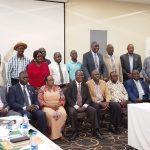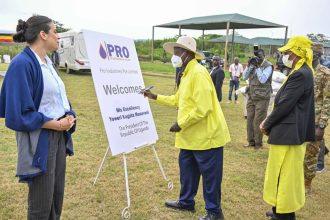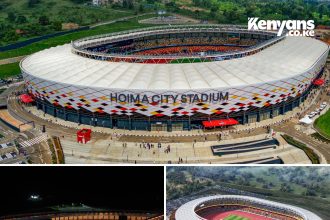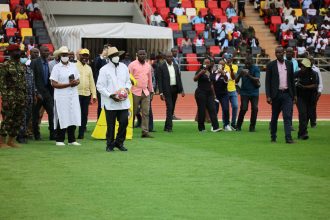Residents of Gulu District are using a new method called Do-nou technology to repair their roads and bridges. This technology, introduced by the Japanese NGO CORE, allows residents to fix potholes and broken bridges using hand-held tools.
Recently, officials commissioned the repair of the Onyama Bridge, connecting Awonyim and Akwi villages in Patiko Sub-county, which was previously impassable.
Due to limited funds for machinery, Gulu District and its sub-counties have found Do-nou technology to be a cost-effective alternative for road repairs. The senior environment officer for Gulu, Ms. Francesca Atoo, stated that they plan to expand this technology to other parts of the district, especially in areas with impassable roads and broken bridges.
Do-nou technology involves filling gunny bags with materials like soil, murram, sand, or gravel and then systematically placing them on the road. These filled bags are tied and compacted manually or with a pedestrian roller. Unlike traditional methods, locals repair only the damaged sections of a road.
CORE, the Japanese NGO, introduced Do-nou technology in May to empower residents to repair their roads and bridges. Training also includes financial literacy to help residents manage the projects effectively.
According to Ms. Yuka Iwamura, the CORE project manager, Do-nou technology involves covering the bags with stone aggregates and a layer of murram to ensure durability. This method can extend the lifespan of road repairs for up to five years with regular maintenance.
The Patiko Sub-county chairman, Mr. Patrick Komakech, emphasized the importance of training residents in this cost-effective road repair technology. He highlighted the urgent need for repairs in some areas where roads have remained unrepaired for nearly a decade.
Mr. Samson Mukiibi, an engineer with CORE, compared the costs, revealing that Do-nou technology is significantly cheaper, with a kilometer of Do-nou constructed road costing about Shs30 million, as opposed to Shs80 million for conventional methods. The project is set to conclude in March 2025.
The road sector in Uganda has faced funding challenges, and ACODE (NGO) recommended rethinking fund allocation and improving road project planning and implementation manuals within the Ministry of Works to address these issues.




















